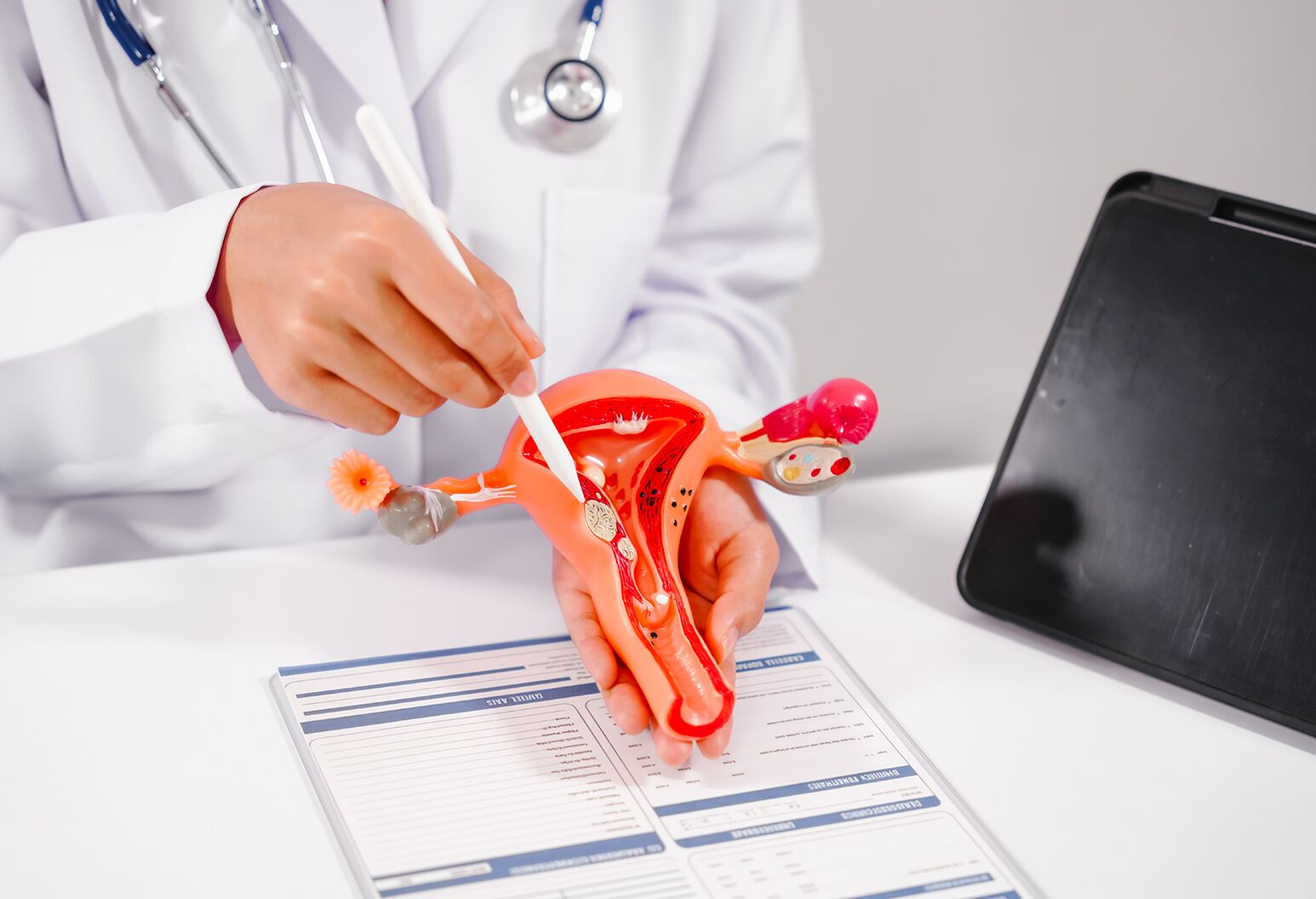women's health
What Is Perimenopause?

An OB/GYN breaks down the symptoms and treatment options of this common hormonal disorder.
3 min read
If you've been grappling with irregular periods, unexplained weight gain, or stubborn acne, you might be one of the many women living with polycystic ovary syndrome (PCOS). But this hormonal disorder is more than just a list of symptoms—it's a complex condition that can affect every aspect of your health and well-being. And you’re far from alone, with the condition affecting up to 13% of reproductive-age women worldwide.
Essentially, PCOS is a hormonal imbalance. More specifically, it’s an increase in androgens, or male hormones, which disrupt the normal function of the ovaries. This can lead to a range of symptoms, beginning with menstrual irregularities. Whether your periods come too frequently, not often enough, or not at all, these disruptions are often the first sign that something is amiss.
In addition, you may experience symptoms that hit at your self-esteem, such as frustrating acne that feels like a teenage flashback, hair in places you wish it wasn't, and thinning of hair where you want it to stay. Women with PCOS are often insulin-resistant as well, a condition that can put them at higher risk of developing Type 2 diabetes.
One of the most heart-wrenching aspects of PCOS is its impact on fertility, causing irregular cycles and unpredictable ovulation patterns making it harder to conceive naturally. However, let me be clear: PCOS doesn’t mean you’re infertile. With the right approach, many women with PCOS can and do become pregnant, thanks to treatments like clomiphene or letrozole, which kick-start ovulation, and lifestyle adjustments that can help balance out your hormones.
By providing your email address, you agree to receive email communication from The Well.
Hormones can be finicky little beasts, but changes to your everyday habits can help get them in line. What you eat, how you move, and even how you manage stress can profoundly impact your symptoms. A diet that's low in processed foods and sugars, and high in whole, nutrient-rich foods can help balance insulin levels—a key player in PCOS. Regular exercise will not only take some weight off, but it can boost your mood and energy levels, as well as fight insulin resistance. And finally, stress management can be a powerful tool for quelling hormonal chaos.
There's no universal cure for PCOS, but there are many ways to manage it effectively (in addition to the lifestyle changes mentioned). Hormonal contraceptives can regulate your cycle and minimize unwanted hair and acne. If you're hoping to conceive, fertility medications can be a game-changer. And for many, medications like metformin can tackle insulin resistance and bring significant relief. You’ll want to work with your OB/GYN to craft a plan that addresses your symptoms and health goals.
Whether grappling with the physical symptoms of PCOS, or struggling to conceive, know that you’re part of a vast community of women who understand what you’re going through. I encourage you to seek out the help of your health care provider, as well as find support from online communities or PCOS groups, so you don’t have to manage it alone.
The Well is Northwell Health’s commitment to the future of health care. In this time of information overabundance, much of which is inaccurate, unhelpful, or even difficult to understand, Northwell Health is on a mission to make a difference as an honest, trusted, and caring partner. The site connects with consumers to provide them with personalized content that reduces their stress, makes them laugh, and ultimately feel more confident and capable on their healthcare journey.